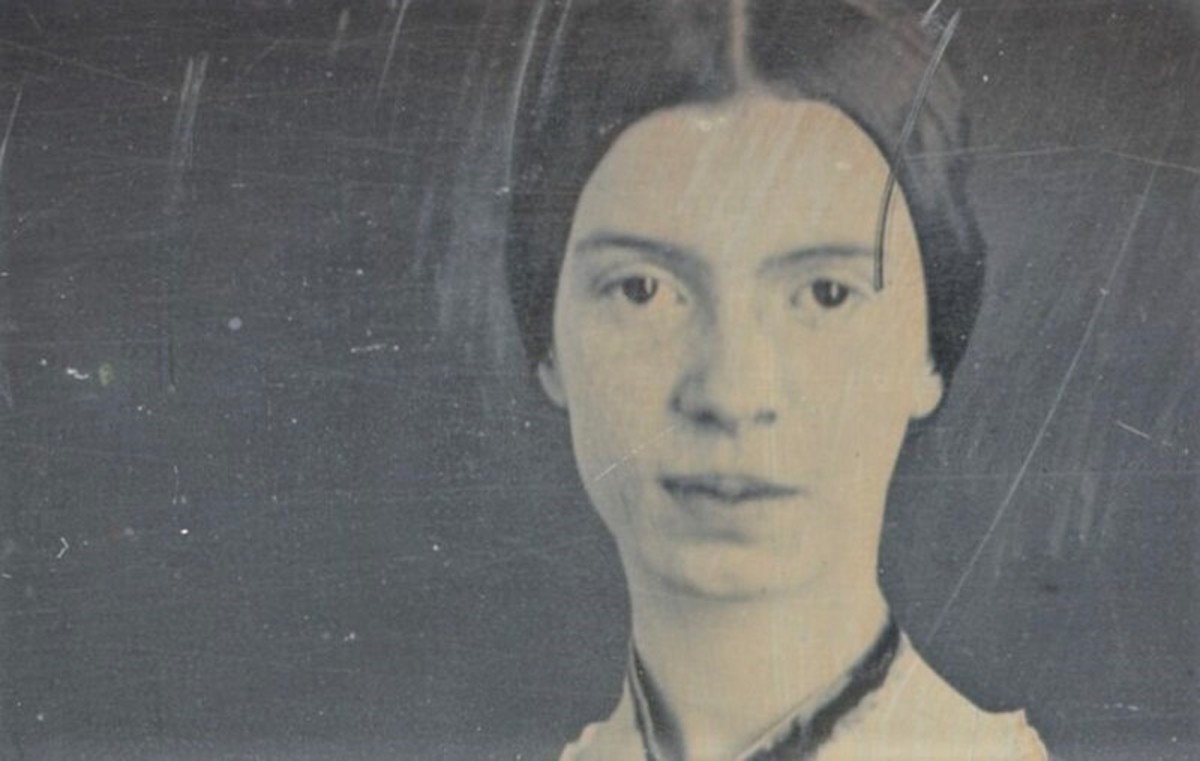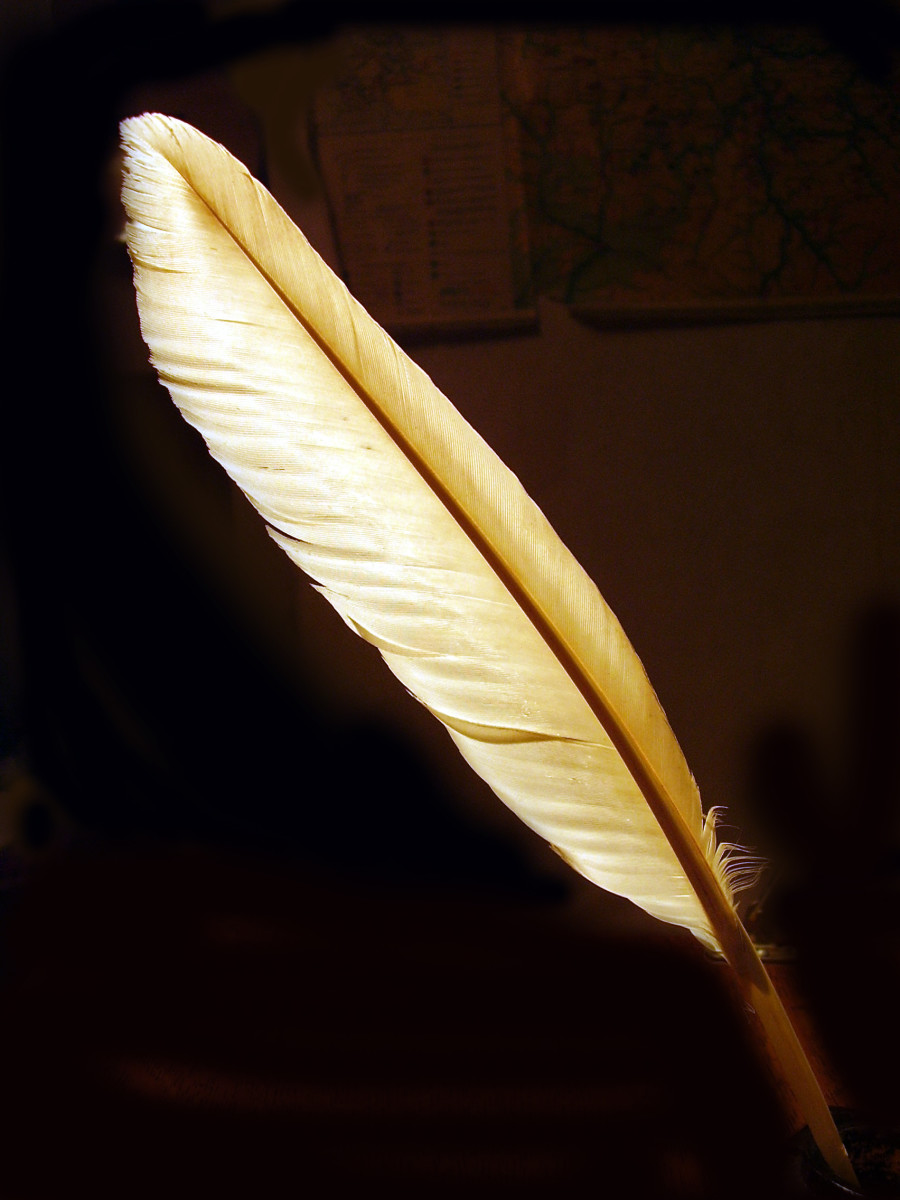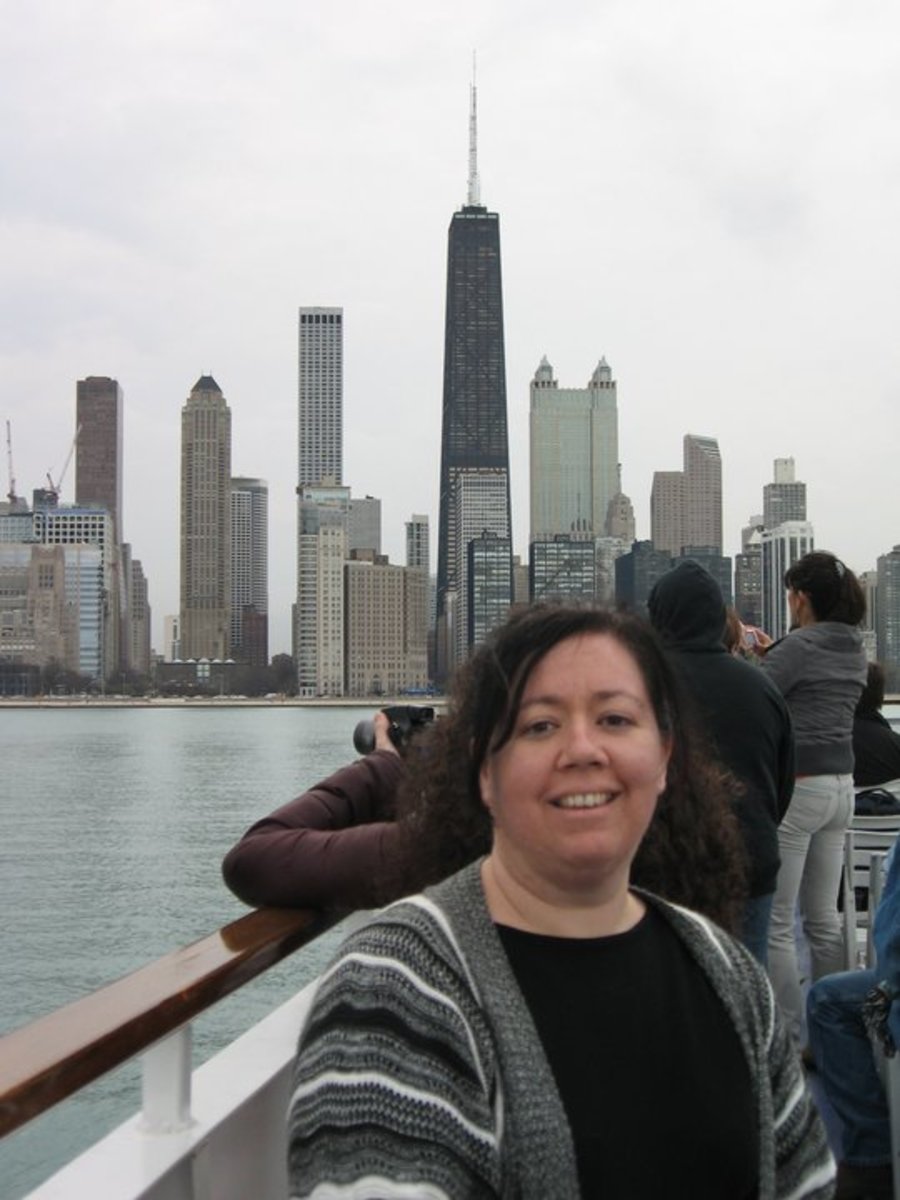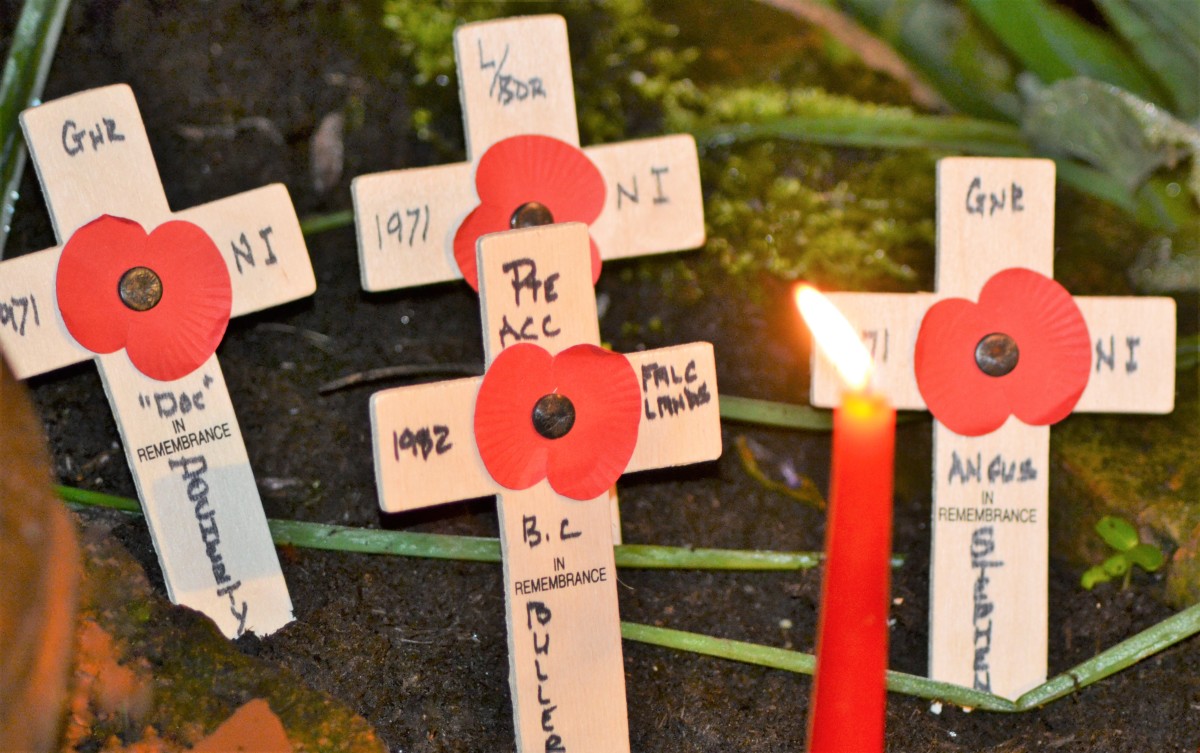Organic Poetry: The Living Fire, by Edward Hirsch
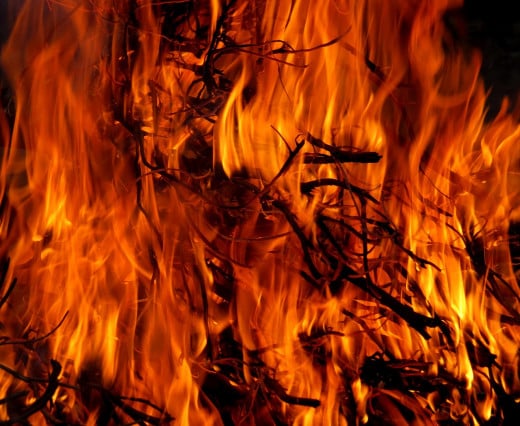
Edward Hirsch has picked a fitting title in The Living Fire for his volume of new and selected poems. “Fire” describes the power of his poetry, its beauty, light, and warmth—although the fire sometimes flickers. “Living” reflects the poems’ relation to a lived life and to the connections they make within themselves, among themselves, and beyond themselves to form an organic whole with a life of its own. This book not only feels and speaks, but breathes and bleeds.
Throughout, The Living Fire testifies to the details, events, and predicaments of an actual life. Hirsch conjures childhood memories like “My Grandmother’s Bed” (“How she pulled it out of the wall/To my amazement…./I was ecstatic to be sleeping on wheels!”), his grandfather writing poetry, and an adolescent “American Summer” spent working and playing:
Each day was a time clock that scarcely moved,
a slow fist punching us in, punching us out,
electric heat smoldering in the purple air,
but each night was a towering white fly ball
to center field—“a can of corn”—coming down
through stars glittering above the diamond.
He also revisits less pleasant aspects of youth, such as the “abortion” a girlfriend underwent in the speaker’s teens only to learn later that the doctor who performed the then-illegal operation for a hefty pile of cash had lied about her being pregnant, and a return to a squalid hometown:
I remember the greasy moon floating
like a tire over the highway, the last
stars flecked like dust on the window
of my father’s garage. For years I’ve walked
away from the concrete fields of a lousy
childhood, the damp haze of life in Chester …
(“How to Get Back to Chester”)
He chronicles the adoption of a son in “The Welcoming.” In “The Asphodel Meadows,” the speaker tells his wife he dreamed they were in “a realm of Hades//reserved for those who are neither good/nor evil …” and he
… turned in a fury on Minos
and raged about the past we had suffered
together, our quirky moments of grace,
the loved ones, the deaths we had tended,
the work we had made, the desperate charms
we had uttered on behalf of our child,
but the god was indifferent to our terms,
and then I woke with you in my arms.
But not all Hirsch’s subjects are as momentous or traumatic: he celebrates a simple summer day in “Summer Surprised Us,”
These first days of summer are like the pail
of blueberries that we poured out together
into the iron sink in the basement—
a brightness unleashed and spilling over
with tiny bell-shaped flowers, the windows
opened and the shrubs overwhelming the house …
and an early morning winter landscape in “Dawn Walk”:
It is soothing to see the houses
Asleep in their own large bodies,
The dreamless fences, the courtyards
Unscarred by human footprints,
The huge clock folding its hands
In the forehead of the skyscraper
Looming downtown. In the park
The benches are layered in
White, the statue out of history
Is an outline of blue snow. Cars,
Too, are rimmed and motionless
Under a thin blanket smoothed down
By the smooth maternal palm
Of the wind.
As Robert Lowell wrote about Gerard Manley Hopkins, Hirsch writes “with his whole man,” and can draw inspiration from anything and everything he encounters. The emotional authenticity of his best work shines clearly.
Unfortunately, not everything in The Living Fire is Hirsch’s best work, and some poems lack the level of emotional reality they claim for themselves. In “Three Journeys,” the speaker follows the daily circuit of a bag lady and parallels it to the poet John Clare’s travels after escaping from High Beech Asylum.
I began this day by following a bag lady
in honor of John Clare but suddenly, tonight,
I was reading “The Journey Out of Essex, 1841,”
in honor of the unknown bag lady.
I had witnessed a single day in her life
and was trying hard not to judge myself
and judging myself anyway.
Frankly, the speaker has no reason to avoid judging himself. The poem gives no indication that the speaker has done anything to the bag lady’s concrete benefit to “honor” her, like offer her food that hasn’t been discarded by others; somehow he sympathizes with her enough to bear witness to her plight but doesn’t empathize with her enough to help alleviate it in the least. Other poems have simple plausibility problems. “Playing the Odds,” about the speaker’s compulsive-gambler father, relates, “I was two years old when I last saw him/blowing on the dice in our kitchen./These are the true numbers, he said …” It’s hard to imagine craps-shooters waxing this philosophical (and inscrutably so to boot), as well as the speaker remembering his father’s words from the age of two. Poems like these suffer from seeming less fully felt, less fully lived than those accompanying them.
As “Three Journeys” shows, Hirsch’s poetry connects to the literary world beyond itself, acknowledging its predecessors and influences. The series The Lectures on Love is written in the personae of several writers, from Giacomo Leopardi to Charles Baudelaire, and other poems pay tribute to the memories of Paul Celan and Joseph Brodsky. The Living Fire also abounds in allusions to the work of fellow poets. “The River Merchant: A Letter Home” responds to Ezra Pound’s classic imitation of medieval Chinese verse “The River Merchant’s Wife: A Letter,” and “Still Life: An Argument” is a modern version of Keats’s “Ode on a Grecian Urn”:
The milk on the table is always
about to spill, the meat could be
encased in wax paper to be
protected from flies, but it’s
not, it’s unnecessary, the flies
threaten to descend on the
exposed meat, but they can’t, they’re
no longer flies, but a painting of flies,
the blood pooled on the platter
of meat never evaporates, it can’t;
look, it’s still there; and if I
never touch you, well then, we never die.
“Song Against Natural Selection” rebuts Elizabeth Bishop’s “One Art”: “Sure,/losing is hard work …” Hirsch even scores a double-whammy by basing “In the Mourning Fields” on Aeneas’ descent into the underworld and beginning it, “The world below is starless, stark and deep”—a skillful echo of Frost’s “The woods are lovely, dark and deep,” which also deals with peering into a realm of obscurity and oblivion. Certain of Hirsch’s allusions don’t make much sense in context; the incongruity of referring twice to the Christian Bible (“thunder addresses the ground” from the Book of Revelations and “a tongue of flame” from the Acts of the Apostles) in an elegy for Jewish poet and Holocaust survivor Paul Celan flummoxed me, though in fairness the “burning tongs” in the same poem hint at Isaiah’s vision of the angel holding the burning coal to his lips. Still, Hirsch deserves credit for mining the riches of literary history and alloying them to his own message.

The poems in The Living Fire also feel alive thanks to a holistic organization and structure, uniting their contents like organs functioning together within a body. In terms of thematic development, many poems follow the straightforward pattern of “Winter in Edinburgh,” each stanza (or sometimes a few stanzas) unfolding the theme more extensively. The said poem begins with a sketch of the setting:
We were far away from the Festival
and the Fringe in our stone tenement.
And we were far from the Enlightenment
in our dimly lit casino, The Firth of Forth,
that bobbed like a boat on the North Sea.
The second stanza homes in on what the speaker himself is doing.
But I was glad to be sipping Scotch
in the corner with Irene, the blackjack dealer,
who was married to a mechanic,
while the roulette wheel stuttered and stopped
and my roommates punted away their salaries.
The final stanza narrates the aftermath of the previous stanza’s activity:
And I was always a little chilled and drunk
when she showed up after her shift
to teach me something about the body,
to shudder down on me from a tower
and sleep on my chest, like a thistle.
On the other hand, Hirsch is equally comfortable employing the more fluid development of “Isis
Unveiled,” in which the focus shifts among the London landscape, the café where the speaker sits, and the occult literature he reads there, reflecting his listlessness as he is stultified by
…the leaden prose
of a system I couldn’t crack,
Isis hidden behind too many veils
and Reality fogged like the city itself.
Even the windows seemed Rosicrucian.
Even this attention-deficit style of structure integrates the poem’s content into a single theme: frustrated that he cannot perceive a purported mystical reality behind material reality, he also loses his sense of material reality as represented by the city and of his relation to it.
Hirsch organizes other poems around repeated images. “On the Anniversary of Joseph Brodsky’s Death” weaves a military motif through an account of attending a memorial to Brodsky, exiled to Siberia by a government that maintained its rule through brute force:
How the sun shivered behind smokestacks
Like a soldier frozen in place….
Afterwards, a slushy walk, salty air,
Sleep in an overcoat in a converted barracks.
All night I heard the muffled boots
Of an army marching through the streets …
I woke to a magisterial silence.
Snow occupied the city.
Hirsch has a special knack for expanding motif into conceit, framing a whole poem within a single all-encompassing image or poetic figure. As mentioned before, loss forms the overarching trope of “Song Against Natural Selection”; one loss triggers another, which triggers another:
It isn’t easy giving up limbs,
trying to manage with that much
less to eat each week, that much more
money we know we’ll never make,
things we not only can’t buy, but
can’t afford to look at in the stores …
Typically, metaphor drives conceit. “Branch Library” puts a new spin on the old conceit of poet as songbird:
I wish I could find that skinny, long-beaked boy
who perched in the branches of the old branch library.
He spent the Sabbath flying between the wobbly stacks
and the flimsy wooden tables on the second floor,
pecking at nuts, nesting in broken spines, scratching
notes under his own corner patch of sky.
I’d give anything to find that birdy boy again
bursting into the dusky blue afternoon
with his satchel of scrawls and scribbles,
radiating heat, singing with joy.
The influence of the metaphysical poets manifests itself in the elaborateness of Hirsch’s conceits, as well as in the wit needed to draw out all the parallels of the comparisons. Hirsch’s metaphorical conceits are smoother than his most notable teacher’s: what he compares tends to have more inherent similarity beneath their surface difference, to be less “heterogeneous,” than the components of Donne’s conceits, and thus require less violence to yoke them together. His cleverness partakes of insight more than ingenuity. As with the metaphysicals, wordplay often clinches the metaphor—witness the colloquialism “beak” for “nose” characterizing the speaker of “Branch Library” as a bird, and the pun on “branch” evoking a bird’s arboreal environment.
Hirsch also creates a sense of unity within his poems verbally through anaphora. The reiteration of the introductory phrase in “Song” underscores the poem’s inclusiveness and expansiveness:
This is a song for the speechless,
the dumb, the mute and the motley,
the unmourned! This is a song for every
pig that was too thin to be slaughtered
last night, but was slaughtered
anyway, every worm that was hooked
on a hook it didn’t expect….
Listen, this song is for you even if
you can’t listen to it, or join in.
… This song is for
everyone who is not listening tonight
and refuses to sing.
Moreover, the persistent recurrence of the title and its mutations in “I Need Help” (“I need help from the inventors”; “The clouds are enormous/And I need strength from the weight lifters”; “… I need help/From the serious men in black robes.”) establishes that poem’s desperate mood and importunate voice. Anaphora not only unifies poems in The Living Fire formally, it winds a consistent thematic cord throughout a poem on which its content is strung.
Hirsch’s techniques for creating organic unity in his poems do not universally succeed, however. Not long after “Branch Library,” Hirsch revisits the boy-as-bird conceit in “Boy With A Headset”:
He is wearing baggy shorts and a loud T-shirt
and singing along to his headset on Broadway….
He is a fifteen-year-old in the city—no more, no less—
but I imagine him as a colorful unnamed bird
warbling his difference from the robins and sparrows …
In the former poem the conceit of boy as bird worked because, the use of the third person notwithstanding, the poem clearly implies that the boy is Hirsch’s younger self—the boy’s time in the library prepares him to become a poet. He furthermore sings with joy, spontaneously, at the end. More importantly, Hirsch brings nearly everything in the poem into the conceit, from the setting likened to a tree’s canopy to the boy’s snacking on nuts like a bird and “scratching” notes with a pen onto paper as a bird scratches in the dirt with its bill. Here, the boy’s song, unlike a bird’s or a poet’s, doesn’t come from inside himself, and his singing is the only aviary behavior the boy exhibits. The speaker does tell us later that the boy “tilts precariously on one wing …/before sailing out over the treetops,” but doesn’t reveal to us any actual movement by the boy that engenders this comparison. Hirsch fails to build a figurative significance in “Boy With A Headset” because he insufficiently founds it on the literal. He practically admits the conceit’s groundlessness in the third line quoted; the poem seems to exist for the sake of the conceit rather than vice versa.
As for wordplay, one can’t help but sigh, “Oh, the irony” when reading about a speaker visiting his high school football coach on his deathbed and recollecting, “The board was a spiderweb of options and counters,/Blasts and sweeps, a constellation of players/Shining under his favorite word, Execution …” (“Execution”). The haiku in “Dark Tour,” most based on place names, are inane more often than not (“11. Madrid Mad at each other/in a romantic city./Love got rid of us.”), and Hirsch can’t or inexplicably just doesn’t sustain the wordplay pattern in all of them: “22. Vienna We felt so lucky/that we crossed all twelve bridges/over the Danube.” And in some instances Hirsch’s anaphora feels empty: ending “I Wish I Could Paint You” with the title, which begins almost every stanza, just seems like Hirsch couldn’t find a strong, effective way to close the poem. When insight fails him, Hirsch tries to replace it with ingenuity, but without insight to articulate his ingenuity becomes a millstone around the poem’s neck rather than a support to it.
Hirsch just as assiduously forges connections among different poems, granting The Living Fire the same sense of organic oneness and completeness as its individual pieces. Some poems are grouped into sequences and series: The Lectures on Love, The Desire Manuscripts, The Hades Sonnets. Similar thematics links the poems in certain sections of the book more loosely; much of the first section of recent poems deals with beginnings and new beginnings (the volume’s first poem is “The Beginning of Poetry”). Often, adjacent poems relate to each other. “Once in Helsinki” continues the travel theme of its predecessor “Dark Tour”—Helsinki is one of the places mentioned in that poem—and like it consists of haiku stanzas. When we notice that the lifespan in the subtitle to “Fast Break—In Memory of Dennis Turner, 1946-1984” equals 38 years, we realize he is the best friend in “Omen,” the poem before it, “Suffering from cancer in a small, airless ward/In a hospital downtown. At 37 he looks/Boyish and hunted, fingered by illness, scared.” Hirsch declares in “Kraków, Six A.M.,” “I’m alone here in the Old World/ where … old hatreds seethe,/and history wears a crown of thorns.” Immediately afterwards, he specifies a major factor in what this passage alludes to in an adaptation of Polish poet Antoni Słonimsky’s “Elegy for the Jewish Villages.” Such clustering of related poems permits Hirsch to explore an idea as fully as he can and consider it from more than one perspective.
Moreover, certain motifs crop up again and again throughout Hirsch’s oeuvre. Insomnia is a major theme in the book, furnishing one poem with its title (“Tight-lipped//and longing to embody sleep,/to devour the white lion//sleep …”). The unyielding burden of consciousness caused by lost sleep escalates from a physical to an existential level, and thanatos, the yearning to forfeit consciousness irretrievably, arises—“I need help from the six pallbearers of sleep/Who rise out of the slow, vacant shadows/To hoist the body into an empty coffin./I need their help to fly out of myself” (“I Need Help”). The motif of somnambulism offers the fantasy alternative of living and acting without consciousness, as illustrated in the title poem of Hirsch’s first collection, For the Sleepwalkers:
I love the way that sleepwalkers are willing
to step out of their bodies into the night,
to raise their arms and welcome the darkness,
palming the blank spaces, touching everything.
Always they return safely, like blind men
who know it is morning by feeling shadows.
Perhaps as a corollary of this discomfort with consciousness, suffocation, a sense of choking failure or smothering oppression, figures prominently in The Living Fire; “I Need Help” refers to “flowers gasping in the dirt—small mouths/Gulping the air like tiny black asthmatics/Fighting their bodies, eating the wind,” and “Edward Hopper and the House by the Railroad (1925)” describes the house in the painting as looking like “someone holding/his breath underwater …” Another plague of consciousness in The Living Fire is emotional or epistemological confusion or uncertainty, represented by fog, like that in the foregoing quote from “Isis Unveiled” (“… Reality fogged like the city itself.”). Just as with the subjects of his grouped poems, Hirsch admits multiple significances into his motifs. The image of fire in one context embodies splendor:
But I like this vigilant saint
Who stood by the river at nightfall
And saw the angels descending
as burnished mirrors and fiery wheels,
As living creatures of fire,
as streams of white flame …
(“Incandescence at Dusk”)
It stands for the danger of the unknown future, for the possibility of disaster, in another.
We couldn’t tell if it was a fire in the hills
Or the hills themselves on fire, smoky yet
Incandescent, too far away to comprehend….
And there were those—were they the lucky ones?—
Who were unaware of rushing toward it.
And the blaze awaited them, too.
(“Uncertainty”)
Here, too, Hirsch continuously pursues the themes, moods, and images that preoccupy him through The Living Fire to discover and capture their complete nature—all the more intriguingly because many of them share a broad kinship.
At times, Hirsch lacks balance in connecting poems to one another; sometimes the connection feels incomplete, sometimes taken too far. I don’t know what “The Poet at Seven,” a reflection on the often concealed uniqueness and alienation of the artist, and “Hotel Window,” a sketch of a man looking down from his room onto a cityscape that first interests him with its activity and then panics him with its otherness and transience, have to do with the self-proclaimed theme of the volume they originally appeared in, On Love (though this may merely reflect poor title choice). The latter poem, additionally, carbon-copies the general scenario and theme of “Man on a Fire Escape” from Hirsch’s previous collection Earthly Measures, right down to the fleetingness of the experience: “And then he closed his eyes and it was over….//So where had he crossed to? Nowhere./And what had he seen? Nothing,” attests “Man on a Fire Escape,” while “Hotel Window” reads, “Then the phone rang and it was over.//Nothing happened …” He also works the motif of Hebrew letters to death. When he observes in “My Grandfather’s Poems,” “I remember that he wrote them backwards,/In Yiddish, in tiny, slanting, bird-like lines/That seemed to rise and climb off the page/In a flurry of winged letters, mysterious signs,” the right-to-left orientation reinforces the strangeness of the hermetic alphabet to the speaker. In the second part of “Two (Scholarly) Love Poems,” he beautifully applies the motif to knowing another self through love:
Touching your body
I was like a rabbi pouring [sic]
over a treatise on ecstasy,
the message hidden in the scrolls.
I remember our delirium
as my fingers moved backwards
across the page, letter by letter,
word by word, sentence by sentence.
But a few poems later, in “Oscar Ginsburg,” the same grandfather described in “My Grandfather’s Poems” uses the same trope as in “Two (Scholarly) Love Poems”: “A practical woman opened me up like a book/and recited me backwards like a Hebrew poem.” And when the motif appears in “The Reader”—“He could not/Hear it breathing between the pages, belabored/In German, trilling in Spanish, stammering/Backward in Hebrew”—the motif neither adds meaning to the poem nor gains new meaning from it. If Hirsch doesn’t vary the significance of his motifs or alter the way in which they contribute significance from poem to poem, they can seem like textual stock footage or clip art, coefficients in some formula for writing poetry Hirsch has devised for himself.
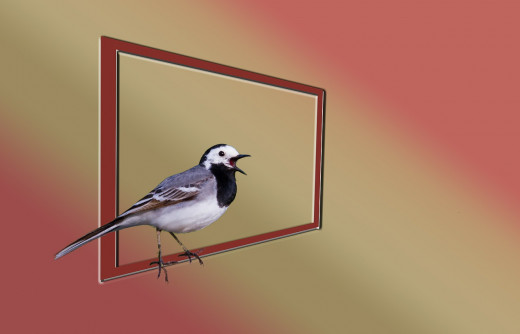
Hirsch’s is a lyrical, musical sensibility, and much of The Living Fire features a lively, upbeat rhythm:
I carried my books through a labyrinth
of mysterious buildings, obscure signs,
and ended up on the edge of a vast park
where the sky suddenly brightened
overhead, a west wind lifted
the wet leaves from the wet ground
and trees shimmered in the distance
like the airy shades of women
dancing in black slips.
(“Isis Unveiled”)
Yet Hirsch knows when to depart from this tendency when his work’s content mandates it. The mostly regular iambic beat of the couplet “All night I heard the muffled boots/Of an army marching through the streets” (“On the Anniversary of Joseph Brodsky’s Death”) conveys the even, metronomic pace of soldiers marching. The descending trochaic rhythm of the line “No one cares about my old humiliations” from “Early Sunday Morning,” as well as its hexameter length, makes the reader feel the weight of memory and defeat on the speaker. The aggregation of stressed syllables in the lines “losing is hard work, one limb severed/at a time makes it that much harder” from “Song Against Natural Selection” reflects the themes of strenuousness and the slow, inevitable reduction of the self. Some of Hirsch’s rhythmic decisions seem ill-guided: the perfect iambic pentameter of “By now my hands have swollen into fists” (“Transfigured Night, Come Down to Me, Slowly”) has a fitting hardness, but certainly doesn’t capture a sense of swelling, and his trademark bouncy rhythm sounds out of place in “Edward Hopper and the House by the Railroad (1925)” when he writes, “Now the stranger returns to the place daily/Until the house begins to suspect/That the man, too, is desolate, desolate/And even ashamed.” But a few slips in wedding cadence to content are par for the course for most poets.
The Living Fire also includes formidable examples of verse form. Chief among these, the poems from The Lectures on Love all have patterns of repeated end-words—which Hirsch makes sound so natural that I didn’t even recognize the repetition until the fourth poem in. The particular pattern in several of the poems, moreover, mirrors their themes. The symmetrical ABCDDCBA stanza pattern for the “lecture” in the voice of Denis Diderot suits the speaker’s rationalistic French Enlightenment temperament, while the occasional variation of end words (always/ways, appreciative/appreciate, embody/body) expresses his point that reason cannot account for love. Hirsch somehow makes the pantoum’s repeated lines fit both the crusader’s monomania in “Margaret Fuller”—
Thank you for attending this conversation on love.
I am going to argue in the Nineteenth Century
a woman can no longer be sacrificed for love.
The Middle Ages are over, ladies and gentlemen,
and I am going to argue in the Nineteenth Century
we are not merely wives, whores, and mothers.
The Middle Ages are over, ladies. And gentlemen,
we can now be sea captains, if you will.
—and Dada randomness in “Tristan Tzara”:
There is no such thing as a dada lecture
a manifesto is addressed to the whole world
I am opposed to every system except one
love is irrational and you are the reason
a manifesto is addressed to the whole world
but bells ring out for no reason at all
love is irrational and you are the reason
I am a bridge harboring your darkness
In the sestina “Heinrich Heine,” he tweaks the envoi to contain three end-words in the first line, two in the second line, and one in the last line, reflecting the sense of time running out on the dying speaker: “For man and woman, the days pass into years/and the body is a grave filled with time./We are drowning. All that rescues us is love” (italics mine). Venturing beyond The Lectures on Love, the villanelle’s refrains similarly symbolize the uniformity of the “unbroken prairie” that “stretched for hundreds of miles” in “Ocean of Grass.” When the setting changes to forest, the refrains accordingly vary: “The ground was holy, but the wind was harsh” becomes “she called the ground holy and the wind harsh,” “so that all she could see was an ocean of grass” becomes “until the world dissolved in an ocean of grass” and “for those who drowned in an ocean of grass.” Plus, Hirsch deftly uses perfect rhyme among the more prevalent slant rhyme in some of The Hades Sonnets to enhance their themes. The slant rhyme running through “The Asphodel Meadows” reflects the speaker’s gripe against Minos, judge of the dead, for consigning him and his wife to the section of the afterlife for the morally neutral as he pleads his case about “the loved ones, the deaths we had tended,/the work we had made, the desperate charms/we had uttered on behalf of our child,//but the god was indifferent to our terms …” The slant rhyme “charms/terms,” completed in the poem’s penultimate line, seems to seal the victory of injustice, of consequences unsuited to the nature of the actions that brought them about. Then the poem ends, “and then I woke with you in my arms.” Leaping over the slant rhyme-word “terms” to create a perfect rhyme between “charms” and “arms” embodies the final line’s theme and mood of restoring the speaker’s original happiness by his escaping the intervening nightmare. Hirsch practices “organic form”: he not only makes his prosody apt for the poems he applies it to, it seems to grow out of the poems themselves, to become an arm of their meaning.
Usually. As with other facets of The Living Fire’s organic nature, form creates dissonance in some poems rather than unity and harmony. The symmetrical repetition of end words within each stanza that so brilliantly captures Diderot’s rationalism makes a bizarre choice for as passionate a persona as Colette. In the series The Desire Manuscripts, Hirsch writes “The Sentence,” based on Canto V of the Inferno, appropriately enough in terza rima. The succeeding poem, “In the Mourning Fields,” is also in terza rima, but is based on Book VI of the Aeneid. Why graft a form Dante chose to represent the Christian Trinity onto a poem with a pagan cosmology, when nothing else in the poem warrants that form? Returning to “Ocean of Grass,” its first variation of the refrains feels out of place: “and prairie fires swept across the plains,/lighting up the country like a vast tinderbox/until all she could see was an ocean of flames.” Granted, substituting “flames” for “grass” embodies the sense that the fires have consumed the grasslands. But this change precedes the change of setting from prairie to forest—the shift to a more varied and layered landscape—that precipitates the rest of the variations. The change of grass into fire is not the same kind of change in quality; the very uninterrupted pervasiveness of the grass enables the blazes to spread unchecked through the plains. The haiku’s brevity often stunts the segments of “Dark Tour” from developing weight and depth. Another part of the haiku form’s awkwardness in “Dark Tour” lies in the absence of its characteristic content: an image indicative of a season and a surprising change or twist in the image. Haiku is, mostly through ignorance of these attributes, notoriously the most misused verse form in America. The erudition regarding poetry that The Living Fire demonstrates elsewhere leaves one puzzled why Hirsch would choose to employ haiku the way most untrained American poets do. In poems like these, form falls out of sync with the poems’ substance, operating independently from and therefore necessarily at cross-purposes with it.
Thus, Hirsch’s least successful poems betray deficiency in the organic unity and connectedness, as well as in his attunement to his work’s aesthetic needs, that make his best work his best. One can’t blame Hirsch for being fallible. But one can question his decision to include such faulty poems in his volume of selected work. Then again, their inclusion might in fact be the most organic aspect of The Living Fire: since he writes “with his whole man,” he must show us his entire self as a poet, both his skills and his vulnerabilities, and admit to both the positive and negative results that issue from his verse’s distinctive features. The Living Fire proves that Edward Hirsch’s work is all of a piece, for better and for worse. For Hirsch’s poetry, the prerequisite to being true to life is being honest with it.


